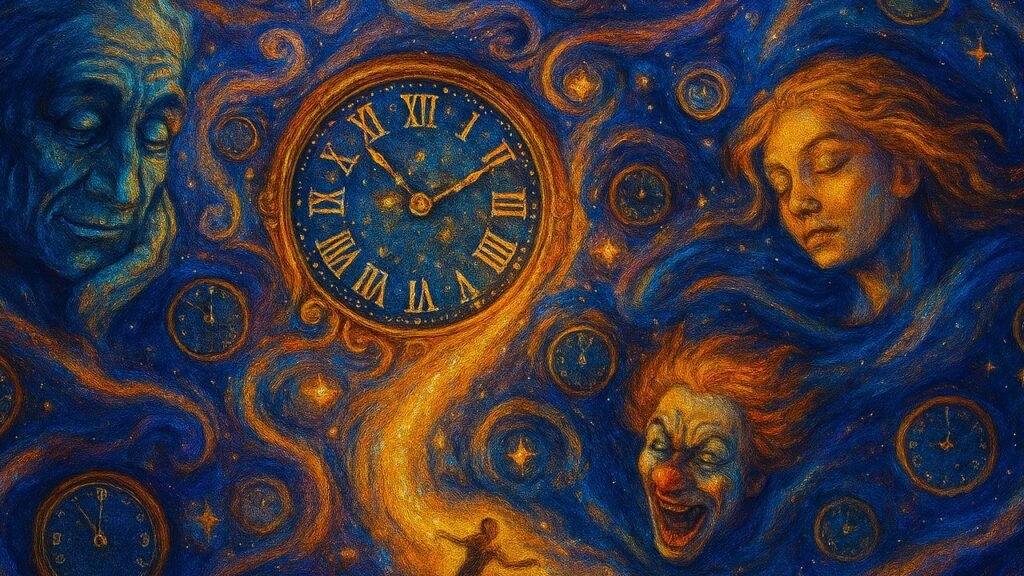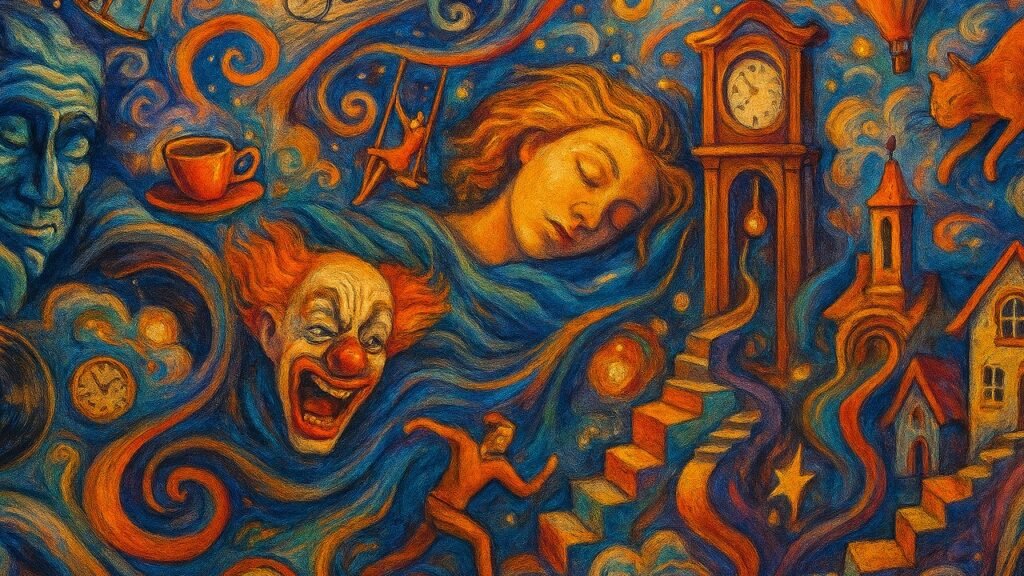Ever woken up from a dream that felt like an entire movie or maybe like you lived months, years, had a kid or another life?
Then you realize you’d only been asleep for half an hour?
It’s one of the strangest tricks of the subconscious. Dreams have their own sense of time, stretching and folding it like taffy.
Despite how endless they might seem, most dreams are actually much shorter than you’d imagine.
When your mind enters REM sleep, that’s when the magic happens. Brain activity skyrockets, your muscles go still, and vivid dream sequences take center stage.
Most REM dreams last anywhere from 10 to 30 minutes, and your final dream before waking can last close to an hour. Still, on average, people spend about two hours total dreaming each night, spread out across several shorter REM cycles.
Here’s the wild part: most dreams don’t last nearly as long as they feel.
A typical dream can be as short as 90 seconds or as long as 30 minutes. Yeah, that’s it.
The longest dreams usually happen right before you wake up, during the final stage of your REM (Rapid Eye Movement) cycle.
Your brain goes through about five or six of these cycles a night, and each one gets longer the deeper you drift into the night.
How Long Does the Average Dream Last
Here’s where it gets pretty dang trippy: your perception of dream time doesn’t match clock time.
In REM sleep, your brain fires off signals in a way that mimics waking consciousness, except logic and sequence get tossed out the window.
This distortion can make five minutes of dreaming feel like an hour-long adventure.
Some researchers, like those from the Germany’s Max Planck Institute, have even tested lucid dreamers who can count seconds inside their dreams and the results show that dream-time roughly matches real-time and yet for non-lucid dreamers.
They asked them to perform specific eye movements to mark time inside their dreams. Dream time and real-world time are surprisingly close, meaning if you dream for 10 minutes, it’s usually about 10 minutes in reality
It’s like stepping into a funhouse mirror of time where emotions stretch reality, and your mind’s editing room splices moments together into something that feels infinite.
Scientists have studied dream length for decades, and the numbers are surprisingly consistent.
While brief dream fragments can occur in lighter sleep stages, the average dream during REM sleep typically lasts 20 minutes.
Early in the night, REM periods are short (just 5 to 10 minutes), but by morning, they can stretch significantly longer.
Dream scientists say that emotional intensity is what makes dreams feel long.
When you’re scared, excited, or deeply nostalgic in a dream, your brain floods with the same chemicals as if you were actually living it.
So when you wake up, the memory of that moment lingers with all the weight of something that should have taken hours. Maybe that’s why heartbreak dreams and reunion dreams always hit so hard…because they feel timeless.
How Long Dreams Last in Each Sleep Stage
Dreams can technically happen in all stages of sleep, but REM sleep is where the magic happens, the vivid, cinematic dreams you actually remember.
Here’s a quick breakdown of what this could look like:
Stage 1 (Light Sleep):
Barely-there dreams — fleeting images or random thoughts lasting under 2 minutes. You probably won’t remember them at all.
Stage 2 (Deeper Light Sleep):
More structured but still fuzzy dreams, lasting around 5–10 minutes. Think of them as the “trailer” before the feature film.
Stage 3 (Deep Sleep):
This is your body’s repair zone. Dreams here are rare, often fragmented or abstract, and usually under 5 minutes long.
Stage 4 / REM Sleep (Rapid Eye Movement):
The main event! This is where storytelling dreams unfold — lasting anywhere from 10 to 30 minutes per cycle. Your last REM cycle of the night can even stretch close to an hour.
Total Dream Time per Night:
Most people dream for about 2 hours total across all cycles — even if they don’t remember a single one.

When Dreams Feel Like Another Lifetime
Now here’s where it gets really bizarre…every so often, someone wakes up in tears, not from fear, but from grief.
They’ve just “returned” from a life that never existed. Online, entire threads are devoted to these stories: people who say they’ve dreamed of living decades in another identity, complete with careers, families, even growing old before waking up in disbelief.
On Reddit, one user described,
“I lived another life for what felt like ten years. I had a wife, kids, a house , I remembered birthdays, arguments, the smell of our garden after rain. When I woke up, I felt like I’d lost everything.”
– Reddit user
Others tell eerily similar stories, of watching children grow, working jobs, facing tragedies and then opening their eyes to find they’re back in bed, only minutes or a night having passed.
So what’s going on here?
Psychologists believe this “life-long dream” experience might be tied to temporal distortion during REM sleep, when the brain’s sense of time breaks down. In REM, areas responsible for linear thinking go quiet, while emotional and memory centers (like the amygdala and hippocampus) light up.
The brain stitches together sensations and emotions into what feels like an extended narrative, skipping the mundane moments, your mind compresses years of experience into the emotional impression of time lived.
But there’s another layer to it, the spiritual one.
Many traditions interpret these dreams as glimpses into parallel realities or soul experiences in alternate timelines.
Some believe that during deep REM, consciousness slips into a realm where time flows differently or doesn’t exist at all.
From that perspective, living an entire lifetime in a dream isn’t illusion; it’s immersion in another dimension of your own being.
And yet, there’s something profoundly human about these dreams.
They can leave you feeling nostalgic for a world that never was and as though you’ve lost something real.
Whether neurological glitch or metaphysical journey, these “other life” dreams force you to confront just how fluid time and identity really are.
Maybe your subconscious isn’t fabricating a new life but reminding you how infinite you already are. And I like that.
Many traditions believe that during sleep, the spirit or higher self moves freely through non-linear realms places where time stretches, folds, and loops differently from the physical world.
Quick Dream Facts
✨ The average person dreams about 2 hours per night, even if they don’t remember it.
✨ Most dreams happen in REM sleep, the final stage before waking.
✨ You forget 90% of your dreams within minutes of waking up.
✨ Lucid dreamers can control and measure time inside their dreams.




